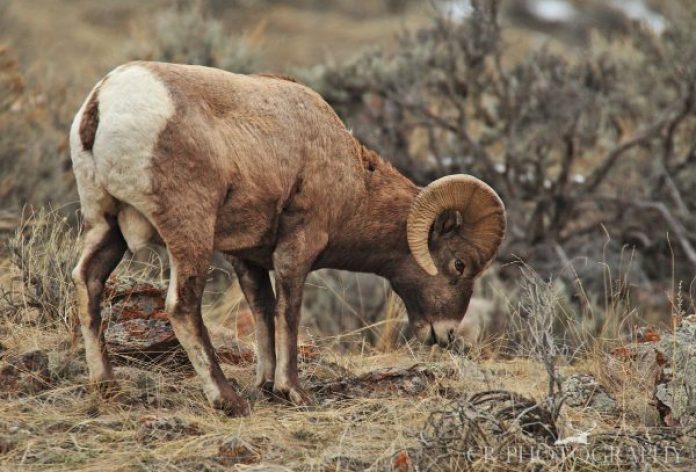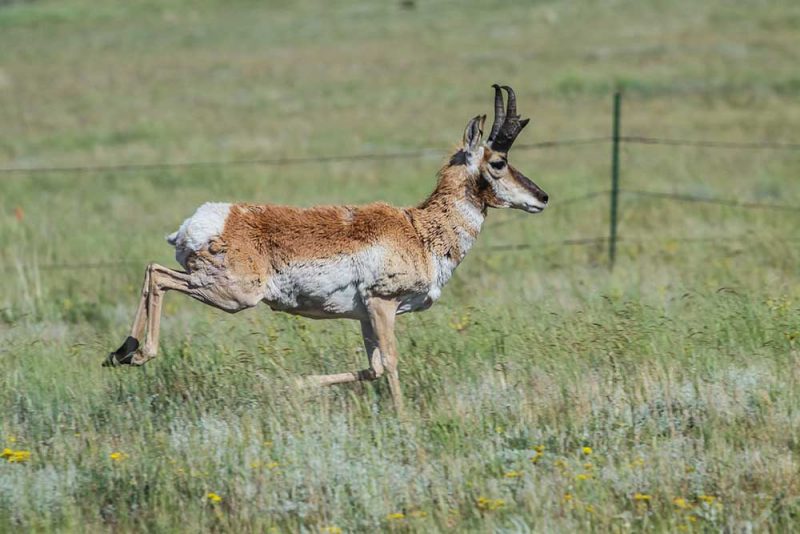
One of the most coveted hunting tags in the lower 48 is that of the Bighorn Sheep, whether it be the Rocky Mountain Bighorn or the Desert Bighorn. Most hunters will apply for tags for the majority of their adult life and be lucky to draw 1 tag in their lifetime. Something about these mountain monarchs pulls at the heart of most western hunters. Whether its the sheer beauty of the animal, ruggedness of the land they live in or overall difficulty of the hunt itself, its something most of us dream of. Even with the odds stacked against us, we continue to apply for these tags year in and year out. As if the drawing % isn’t bad enough, there are other factors that can completely put a halt to a bighorn hunting season in your area. The most common cause of this is Epizootic Pneumonia.
Epizootic means a disease or condition that occurs at about the same time in many individuals of the same species in a geographic area in a short time. Epizootic Pneumonia is commonly caused by the pathogen Pasteurella but in some cases can be caused by lungworms. Pneumonia can result in respiratory distress and failure in bighorn sheep. An outbreak can completely wipe out a herd of bighorn sheep in very little time. Studies have shown that the initial outbreak can cause up to 90% mortality in all ages of the sheep. The initial die-off is usually followed by annual pneumonia outbreaks in lambs for several years to follow. With the combination of the initial die off and years of little to no population generation this has a crippling effect on the small herds of bighorn sheep. There is currently no vaccine that prevents these occurrences from happening.
There is no 1 single factor on how the bighorn sheep are contracted with the pathogens that cause the Pneumonia. But studies have shown a major player in the cause of this happening is that of the domestic sheep. These cases usually happen when bighorn sheep and domestic sheep ranges overlap and interaction is inevitable. Again I want to reiterate that domestic sheep are not the only cause of Pneumonia. However, they are a cause that we are focusing on in this article. Here is an excerpt from a study done by Besser et al (2012):
Experimental trials combining bighorn sheep and domestic sheep had very clear results. 98% of all bighorn sheep from 1979 to 2009 in the study died of Pneumonia while the domestic sheep stayed healthy. In contrast, 93% of bighorn sheep survived similar situations with non-ovine ungulates, including cattle, horses, deer, and elk.
Many agencies recommend having a buffer zone in place (several miles) between the domestic sheep and the bighorn sheep’s core area. Like most animals, the bighorn sheep travel a lot especially sub adult males looking for a mate. The buffer zone will help in limiting the amount of interaction the 2 species have. But no amount of conservation practices will completely resolve this problem. This strain of Pneumonia is not transmitted from sheep to human or to domestic livestock.
One of the most effective measurements done by game agencies is the actual killing of bighorn sheep, both sick and healthy. This may seem counterproductive but these strains are transmitted so quickly from bighorn sheep to bighorn sheep this is a very effective manner to control the outbreak. They will effectively remove the sheep that are sick and showing signs of pneumonia that had direct contact with domestic sheep. They will then on some instances remove the healthy bighorns that had direct contact with the sick bighorn sheep. This is obviously causing a stir with some people but I feel its a necessary measure to preserve the population of the bighorn sheep.
I want to point out before we get calls from sheepherders, that domestic sheep are only 1 cause of these outbreaks. But studies have clearly shown that interaction between the domestic sheep and bighorn sheep usually end in a bad way for the bighorns.
The passion we western hunters have for these animals will never die but we can’t stand back and let other people fight our fight. I strongly encourage you as hunters and conservationists to get involved with the agencies that help protect our herds. The obvious one is the Wild Sheep Foundation but any organization that helps protect our public land is an organization you should look into. We as hunters are by far the #1 conservationists and with our help, our bighorn sheep herds can be there for generations to come.














